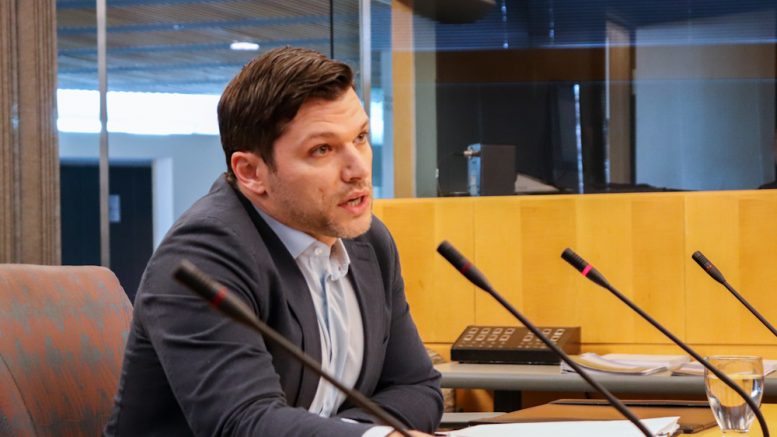After a packed meeting on Tuesday evening, the Government of the Northwest Territories’ Standing Committee on Economic Development and Environment held a second meeting Thursday night to hear from the public.
The discussion covered three Bills: the Protected Areas Act (Bill 38), the Environmental Rights Act (Bill 39), and the Forest Act (Bill 44).
More cooperation
Dene National Chief Norman Yakeleya was the first to present and focused on the Dene leadership’s displeasure with the drafting process for the Forest Act.
In early March, Dene Nation said Grand Chiefs from across the territory were unhappy with how the bill was drafted.
At the time, in an interview with CKLB, Yakeleya said, “Anybody can come to you and say what they’re planning to do. They’ll sit and listen but at the end of the day, they’re the ones that are going to write the legislation… We need more than consultation, we need engagement, active co-drafting. That’s when we know we’re comfortable with the bill.”
That was Yakeleya’s message once again at Thursday’s meeting. He added that the legislation also needs to recognize the hunting and harvesting rights outlined in the treaties.
Later, Nick Leeson spoke on behalf of the Sahtú Renewable Resources Board (SRRB). He had much of the same message for both the Protected Areas Act and Forest Act.
“These bills were largely developed in the board’s absence until very late in the process,” he said. “Bill 44, the Forest Act, was particularly upsetting in this respect.” Leeson explained that the SRRB along with other boards and Indigenous governments weren’t provided at draft of the bill until late December last year. Following the Christmas break, the SRRB had the chance to offer feedback during a working group session in January but hadn’t see the updated version of the bill until it was tabled in the legislature.
“The reality is that the process… left the SRRB and the other boards with no other option than to oppose the submission of the bill,” said Leeson.
Ultimately, he said the board won’t be opposing the bill as it moves through the legislative process but the GNWT needed to learn from the mistakes in the drafting process.
Yellowknife North MLA Cory Vanthuyne, and committee chair, said the process issue had been raised at all of the public meetings on these bills.
Kam Lake MLA Kieron Testart said he’d never seen so much concern surrounding a bill.
“Cannabis had more public support than Bill 44,” he added.
More accountability
Many presenters Thursday evening were concerned with the ministerial powers in each bill and the inconsistencies in accountability measures.
For example, right now the Protected Areas Act proposes a public registry, where the Forest Act does not.
Frame Lake MLA Kevin O’Reilly is especially fond of the idea of having a single environmental public registry where residents can see decisions on proposed protected areas (Bill 38), agreements between parties for harvest (Bill 44) and issues surrounding environmental investigations (Bill 39), among other things.
Lois Little spoke on behalf of the local chapter of the Council of Canadians. She brought up the issue of necessary protections for land and water protectors.
“There are going to battles for diminishing resources and we’re seeing elsewhere in the world and elsewhere in the country there is state violence against individuals who are water protectors or land defenders,” she said. “I think we need give some attention to some protections for those individuals.”
This would be done through Bill 39 which ensures people have the right to a “healthy environment.” Exactly what that means is still unclear and was a criticism from the previous meeting.
This was the last public meetings for these bills. Vanthuyne, chair, said they will likely only be presented to the assembly in this government’s last session beginning in August.
Francis was a reporter with CKLB from January 2019 to March 2023. In his time with CKLB, he had the immense pleasure and honour of learning about northern Indigenous cultures.









